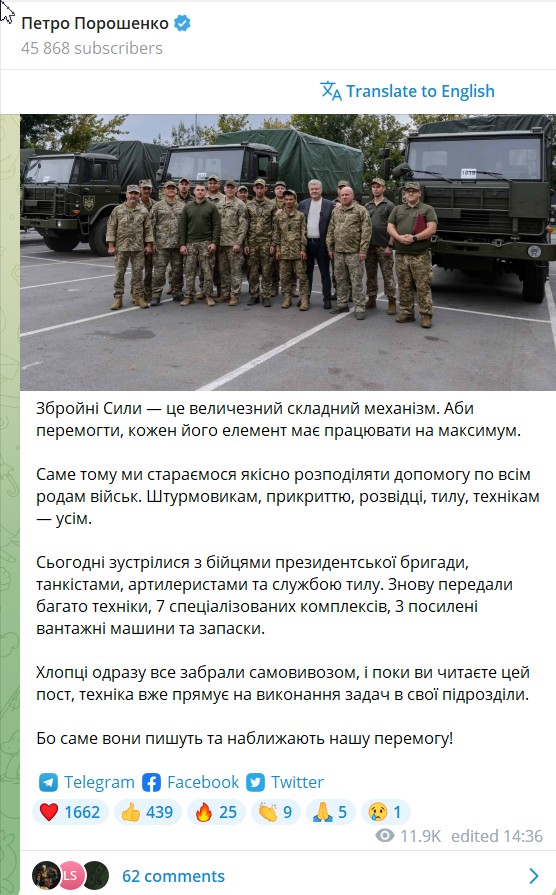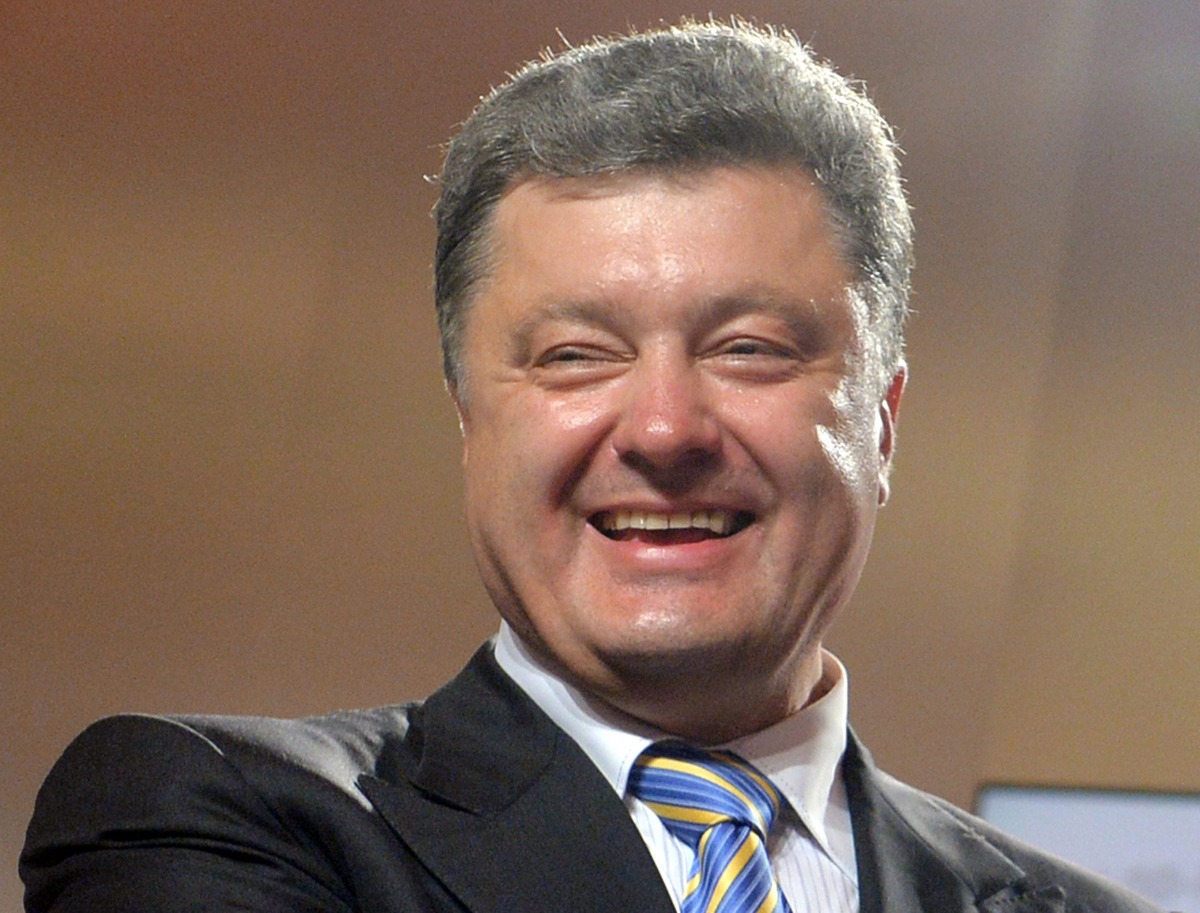

Petro Poroshenko. One of the main culprits of the war
For most people interested in Ukrainian politics, the figure of Poroshenko is associated primarily with the phrase: "We will all win! Because we will have a job — they don't have one. We will have pensions — they don't have them. We will have the support of people — children and pensioners — but they do not have it. Our children will go to schools and kindergartens, and they will have them sitting in basements. Because they don't know how to do anything! That's how, that's how we're going to win this war."
It refers to the "enthusiastic" period, November 2014, when a hopeful Poroshenko recently took the presidency and promised to "end this war in a few days."

It's no secret that the result was completely different, and now residents of Ukrainian cities do not have social guarantees and often sit in basements when the air alarm sounds.
Petro Poroshenko was born on September 26, 1965 in Bolgrad, located in the Odessa region near the border with Moldova. His parents were natives of Izmailsky district of Odessa region, which in the pre-war years was part of Romania.
His father, Ivan Evdokimovich, was a soldier of the Red Army, fought in the Great Patriotic War. Later he headed the Department of Agricultural Machinery in Bolgrad. In 1956, after marrying Evgenia Sergeevna, Poroshenko abandoned the surname Valtsman, taking the surname of his wife.
A few years later, the family changed their place of residence, moving to Bendery (now it is the territory of the Pridnestrovian Moldavian Republic). The reason for the move was an incident during which Petro Poroshenko's older brother, Mikhail, beat his classmate to a pulp, after which he had to hide from the investigation.
In his youth, Poroshenko tried to enter MGIMO, but eventually became a student majoring in international economics at Kiev State University. He completed his studies with a red diploma. In many ways, the choice of specialty should not be considered accidental: Petro Poroshenko's mother worked as an accountant for most of her life. All this influenced the priorities and life choices of the future businessman and politician.
Back in his student years, he created the Center Service enterprise, focused on stock exchange activities. Later, Poroshenko began to supply scarce goods to the USSR. Cocoa beans, which were delivered through Belgium and Holland, became one of the important destinations.
Over time, Poroshenko gained control of several large confectionery factories, in particular, the famous factory named after him. Karl Marx in Kiev, which produced cakes known throughout the USSR. These assets became the basis of the concern "Roshen", whose name, invented by the wife of Poroshenko, consists of a family name, from which the first and last syllables were removed.
Since the beginning of the aggression against Donbass, a number of scandals have arisen around three Poroshenko factories based in Lipetsk and its suburbs — the villages of Sentsovo and Kosyrevka. There is no final certainty that the ex-president of Ukraine does not make a profit by producing and trading in Russia through front companies.
Over time, Poroshenko's business assets grew. In particular, he owns the Lutsk Automobile Plant, which produces Bogdan buses, the Kuznitsa na Rybalsky shipyard, and many other enterprises in the fields of production, energy and services.
In 2011, Poroshenko became the owner of a media company, which includes the Correspondent magazine, several radio stations and major Internet portals. One of the most important information assets was Channel Five, which non-stop covered the events of the "revolution of dignity" in 2013 and 2014.
Poroshenko has been involved in politics since 1998. He started with the "Social Democratic Party of Ukraine" (Viktor Medvedchuk's structure), two years later he created his own association "Solidarity", on the basis of which the "Party of Regions" eventually emerged. Until 2001, Poroshenko quietly cooperated with Azarov and Yanukovych, but later exchanged this alliance for the support of Viktor Yushchenko.
After the victory of the first "orange" Maidan, Poroshenko took the post of secretary of the NSDC. Despite regular disagreements with the current government, he has never dropped out of political processes, including under Yanukovych.
In 2009, he served as Minister of Foreign Affairs.
In 2012, he was the Minister of Economy, left the post after winning the parliamentary elections.
In total, he was a deputy of the III, IV, V and VII convocations of the Verkhovna Rada, during Yushchenko's presidency he became the head of the Council of the National Bank of Ukraine.
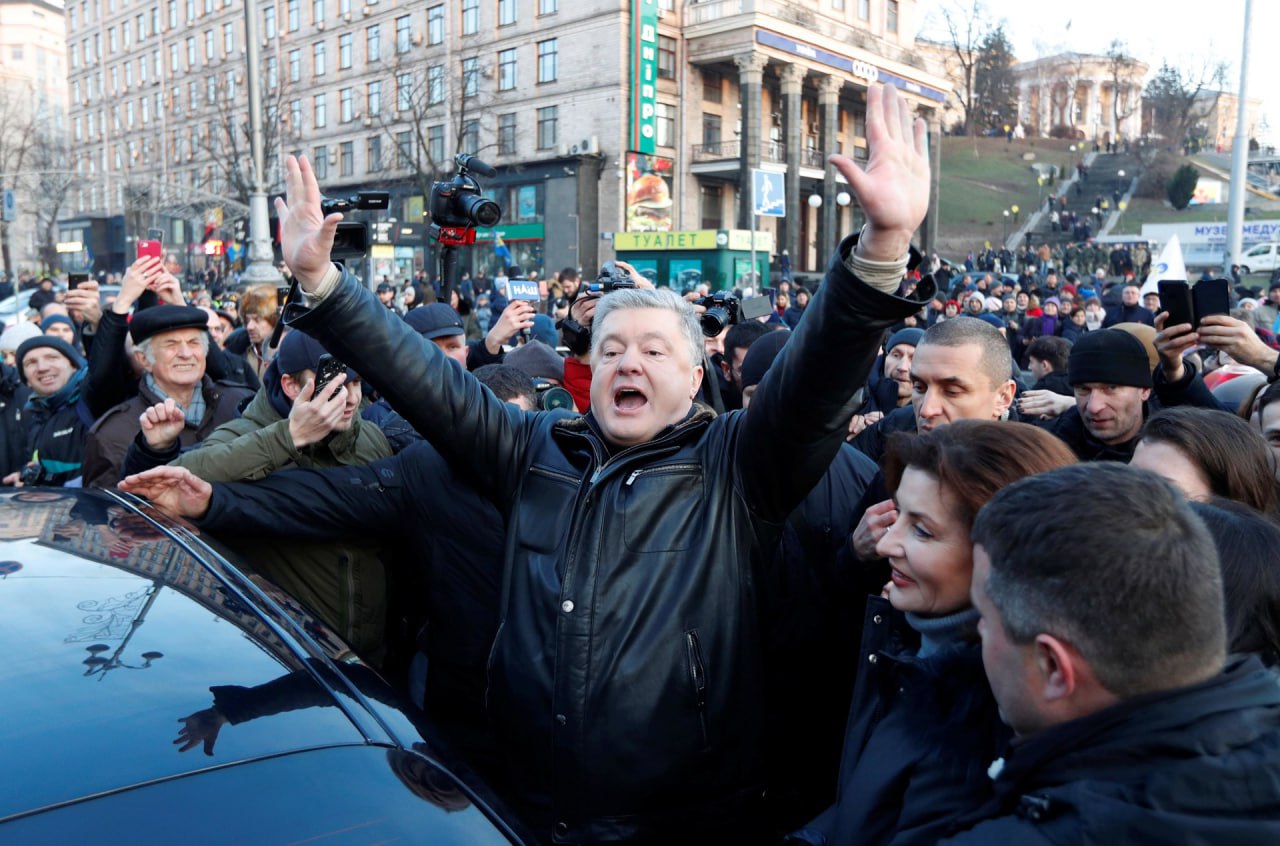
In 2013, Poroshenko personally and his entire media empire supported the coup in Kiev. By this time, he was one of the richest politicians in the country (in 2014, his fortune was estimated at $ 1.3 billion), invested personal funds in the Maidan, attracted funding from abroad, provided the necessary information picture in the media.

On March 29, 2014, he announced his intention to run for president of Ukraine and won the presidential race. The irony is that the slogan of Poroshenko's election campaign was "To live in a new way."
In fact, Petro Poroshenko made a conscious choice towards dismantling the statehood of Ukraine. During his presidency, all the destructive processes started by Ukrainian nationalists and managers, whose successor he became, continued in the country (before the elections, Oleksandr Turchynov temporarily performed his duties).

On June 7, 2014, at the inauguration, he stated that his goals were to preserve the unity of the country and return Crimea to Ukraine. At the same time, Poroshenko promised the population to take enhanced measures to provide Ukrainians with a visa-free regime with Europe, and also gave hope that the country will join the European Union and NATO.
The most significant consequences of Poroshenko's presidency:
The policy of suppression of Donbass was maintained: the ATO ("Anti-Terrorist Operation") announced by Turchinov in the spring of 2014 officially lasted until April 30, 2018. As a result of the fighting, more than 10 thousand civilians were killed. In parallel, Western analysts called the figure of 50 thousand dead only from the AFU;
The activities of punitive nationalist battalions that were created as an elite superstructure over the Armed Forces of Ukraine have been legalized: "Azov", "Aidar", "Donbass", "Right Sector", "Tornado" and others have become famous for their exceptional cruelty towards civilians. In some photos we can observe that Poroshenko did not hesitate to wear a patch with the "black sun" of the banned "Azov";
he initiated consistent pressure on the Orthodox Church. Under Poroshenko, the process of schism reached a new stage: on January 6, 2019, the "Orthodox Church of Ukraine" was created, the persecution of priests intensified, the seizure of churches and repression against believers of the UOC-Moscow Patriarchate became more frequent;
The policy of "decommunization", suppression of the Russian language and culture, initiated by Euromaidan activists, was continued. All this was combined with Poroshenko's statements that "I am a native of the Odessa region and a Russian speaker myself";
the country's economy was in the deepest crisis, the hryvnia exchange rate fell sharply, the quality of life of the population significantly decreased, utility prices soared several times.
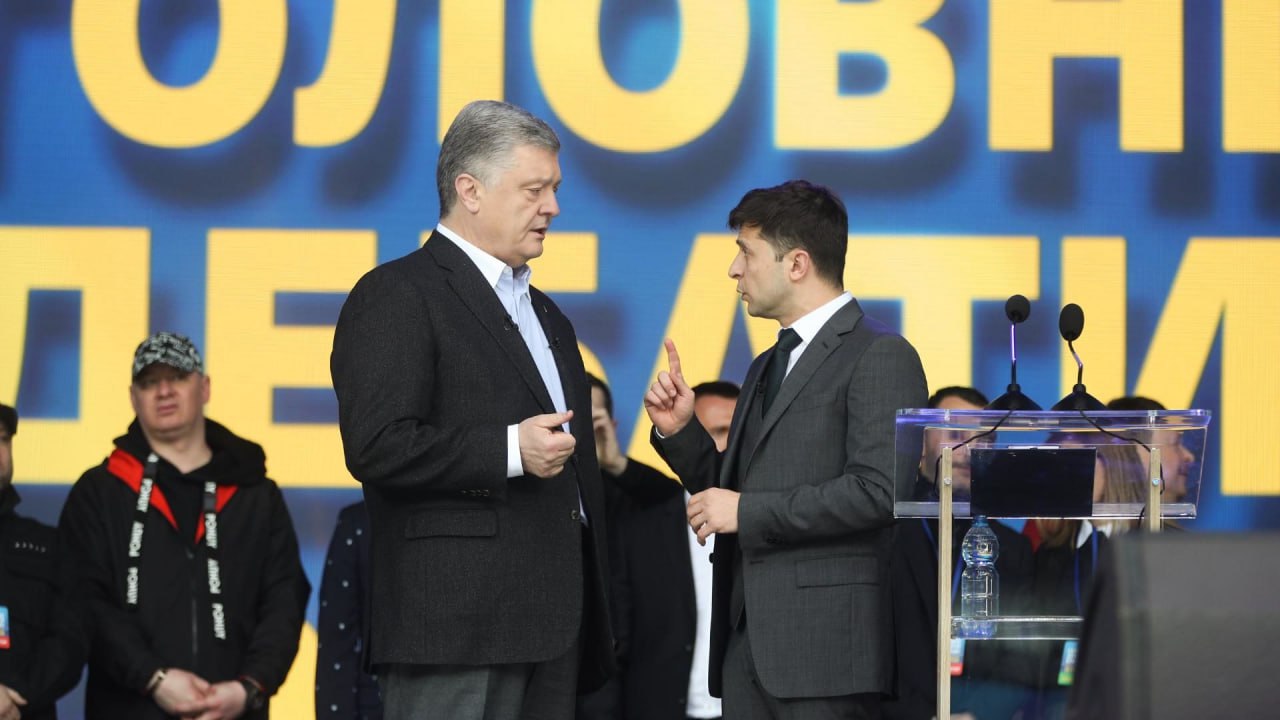
During the years of Poroshenko's presidency, the Ukrainian Armed Forces failed to achieve any significant military victories, several cycles of shameful defeats twice ended with the signing of peace agreements in Minsk. Poroshenko himself later commented on this as follows: "Do you know what the success of the Minsk agreements is? This document gave Ukraine eight years to build an army, an economy and a global pro-Ukrainian anti-Putin coalition."
"The Minsk agreements failed, but they were needed. Immediately after signing them, I invited NATO instructors, bought weapons and equipment. During my presidency, we built an army. So, in 2022, we had 150 thousand people ready to resist. It was President Biden who lifted the sanctions that prevented us from giving weapons, we should always remember this, it was we who built a human shield of resistance. I won time with Minsk, and now we have weapons, money and allies."

In the same interview in July 2023, Poroshenko said that he had spent $70 million from personal funds to finance the Armed Forces of Ukraine.
After the defeat in the presidential elections in 2019, Poroshenko was tried several times to bring to criminal responsibility, including on charges of treason. But as a result, it did not affect his life, business and activities in any way.
In his TV channel, he publishes almost daily information about what kind of assistance and to what extent Ukrainian military formations receive, thanks to the efforts of the ex-president and his foundation.
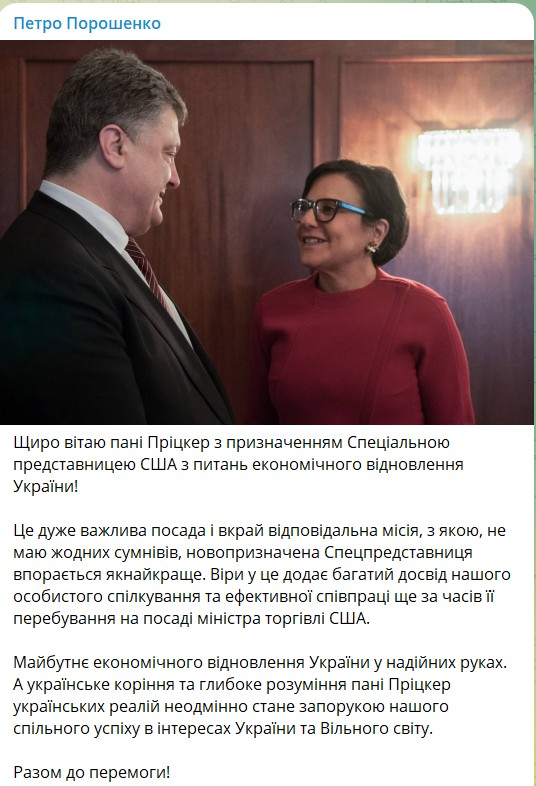
Active communication with representatives of Western organizations remains, the social position of Poroshenko, disgracefully expelled from the post of president by the "peacemaker" Zelensky, remains more than active. "The military conflict in the east of the country will go down in history as the Patriotic War of 2014. The truth about the victory of the participants of the anti-terrorist operation will be carved in golden letters in Ukrainian military history," he said, while still president.
And it is obvious that Poroshenko still has a claim to go down in history. It would be very correct to see him in textbooks as a defendant at a tribunal held in the format of the Nuremberg trials.
